Now Viewing:
Law
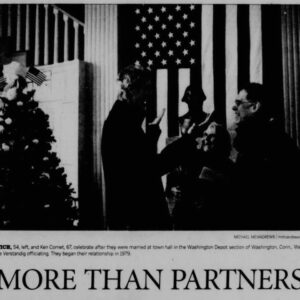
Connecticut Issues Same-Sex Marriage Licenses for the First Time – Today In History: November 12
On November 12, 2008, Connecticut issued its first marriage licenses for same-sex couples after Kerrigan et al. v. Commissioner of Public Health et al..
Read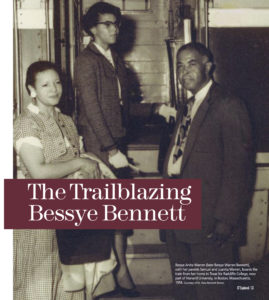
The Trailblazing Bessye Bennett
In 1974, Connecticut finally admitted its first African American female lawyer, Bessye Bennett.
Read
Race Restrictive Covenants in Property Deeds
“No persons of any race except the white race shall use or occupy any building on any lot…” Language such as this still appears in Hartford-area housing covenants today.
Read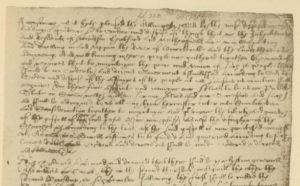
The Fundamental Orders of Connecticut
The Fundamental Orders, inspired by Thomas Hooker’s sermon of May 31, 1638, provided the framework for the government of the Connecticut colony from 1639 to 1662.
Read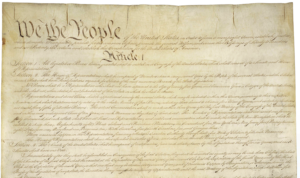
Connecticut Ratifies US Constitution – Today in History: January 9
On January 9, 1788, Connecticut became the fifth state to ratify the Constitution of the United States.
Read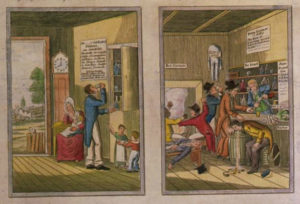
The Living Actually Haunted Many Connecticut Taverns – Who Knew?
Early Connecticut laws deemed anyone who spent excessive time in taverns as a “tavern haunter” and subjected them to fines and ridicule.
Read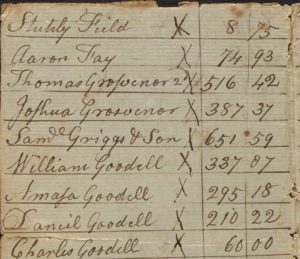
The Connecticut Poll Tax
The Connecticut poll tax lasted for almost 300 years and encompassed four different variants.
Read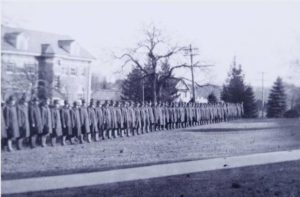
Connecticut Residents Did Not Let Veterans Day “Go Commercial.”
Despite passage of the federal Uniform Holiday Bill in 1968, Connecticut residents were largely reluctant to move Veterans Day observances from November 11.
Read
Mohegan Federal Recognition
“We are no longer the little old tribe that lives upon the hill. We are now the Nation that lives upon the hill.”
Read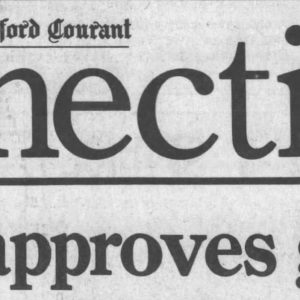
Eighteen Years in the Making: Connecticut’s 1991 Gay Rights Law
Connecticut’s 1991 “gay-rights law” was one of the state’s first LGBTQ+ civil rights laws and prohibited discrimination based on sexual orientation in housing, employment, and credit.
Read
Education/Instrucción Combats Housing Discrimination
This group’s bilingual name reflected its educational mission as well as its dedication to unified, multicultural cooperation for the common good.
Read
Literacy Tests and the Right To Vote
Connecticut was the first state to require a literacy test of would-be voters and, even as the practice came under fire as a tool of discrimination, the state held steady until 1970.
Read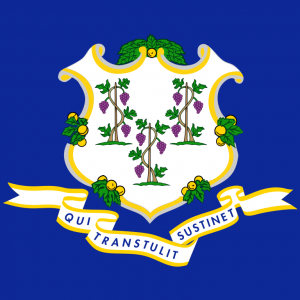
Connecticut’s Official State Flag – Who Knew?
While Connecticut used variations of flags for state functions, the legislature did not adopt an official state flag until 1897.
Read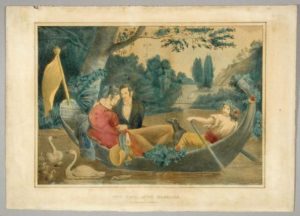
Grounds for Divorce – Who Knew?
While Connecticut was not the first to grant a divorce, it was the first to define the grounds for dissolution of a marriage in An Act Relating to Bills of Divorce.
Read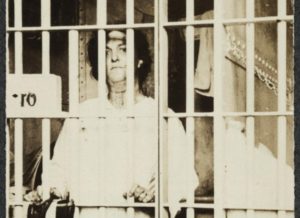
19th Amendment: The Fight Over Woman Suffrage in Connecticut
In Connecticut, Frances Ellen Burr and Isabella Beecher Hooker took up the cause by forming the Connecticut Woman Suffrage Association (CWSA) in 1869.
Read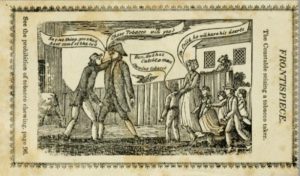
The Long, Ambiguous History of Connecticut’s Blue Laws
Connecticut’s blue laws are a series of laws based on puritan values that restrict or ban certain “morally questionable” activities on days of worship or rest.
Read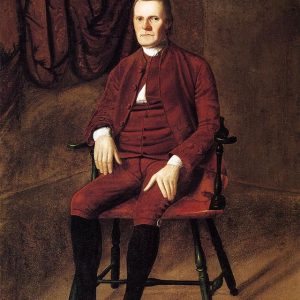
Roger Sherman Dies – Today in History: July 23
On July 23, 1793, Roger Sherman—a Connecticut merchant, lawyer, and statesman—died in New Haven.
Read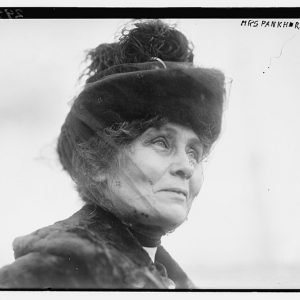
Emmeline Pankhurst’s “Freedom or Death” Speech Energizes Connecticut Women in 1913
In 1913, a famous British suffragist, Emmeline Pankhurst, gave a powerful and memorable speech on the steps of the Parsons Theater in Hartford.
Read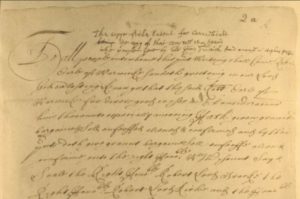
The Charter of 1662
The Connecticut Charter, which provided the basis for Connecticut government until 1818, was secured because of Connecticut’s realization after the restoration of Charles II to the English throne in 1660 that the government of the colony lacked any legal foundation.
Read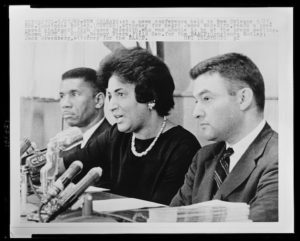
Constance Baker Motley: A Warrior for Justice
New Haven lawyer Constance Baker Motley became famous for arguing some of the most important cases of the civil rights movement.
Read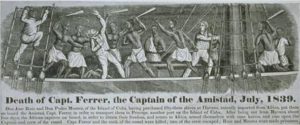
The Amistad
After enslaved people revolted and took control of the Amistad in 1839, Americans captured the ship off Long Island and imprisoned the enslaved in New Haven.
Read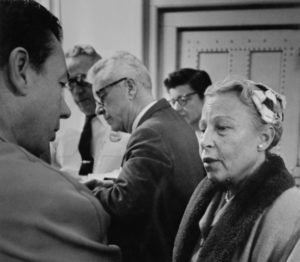
Griswold v. Connecticut – Today in History: June 7
On June 7, 1965, the Supreme Court ruled 7-2 in Griswold v. Connecticut.
Read
The Incident of the Stonington Schooner ‘Breakwater’: A View from Indian Country
Hundreds of American Indians served as mariners, including on the Stonington schooner ‘Breakwater,’ which survived capture in the Falkland Islands.
Read
A Public Responsibility: Conservation and Development in the 20th Century
The seemingly contradictory calls to use or preserve the state’s natural resources are, in fact, closely related efforts that increasingly work in tandem—but not without conflict.
Read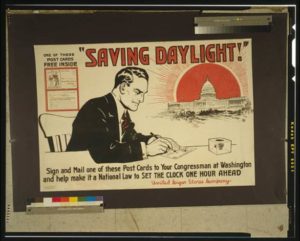
Playing with Time: The Introduction of Daylight Saving Time in Connecticut
Despite both formal and informal attempts to regulate the observance of Daylight Savings Time in Connecticut, it still remains a controversial topic for many state residents.
Read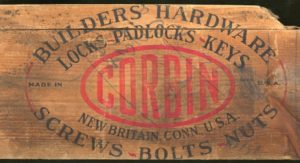
The Corbin Cabinet Lock Company and Patent Law: A Lesson in Novelty from a CT Perspective
New Britain, fondly known as the “Hardware City,” had numerous companies that contributed to modern industrialization.
Read
Richard Reihl: The Hate Crime That Became a Turning Point for LGBTQ+ Civil Rights
The 1988 murder of Richard Reihl, a gay man from Wethersfield, galvanized and mobilized communities to organize and transform LGBTQ+ civil rights legislation in the state for decades to come.
Read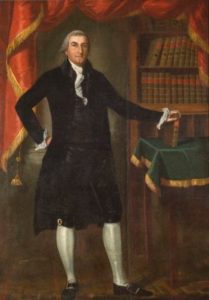
Uriah Tracy Authors the Rules for Impeachment
Uriah Tracy was an attorney and politician who took up arms against the British after the Battles of Lexington and Concord.
Read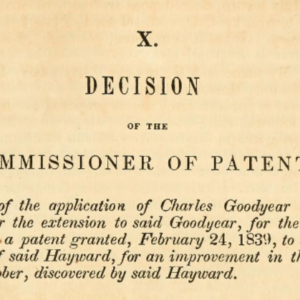
Rubber Vulcanization and the Myth of Nathaniel Hayward
Colchester has a persistent myth that Hayward invented vulcanization—a process that helps make rubber useful for manufacturing—but did not receive the credit he deserved.
Read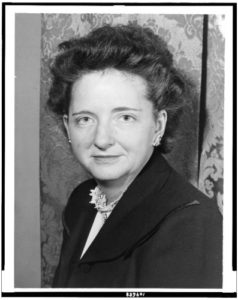
Elizabeth Bentley Born – Today in History: January 1
Elizabeth Terrill Bentley is best known for her role as an American spy for the Soviet Union—and for her defection to become a US informer.
Read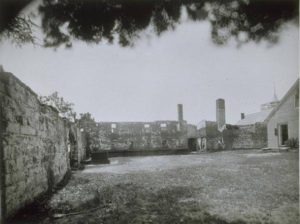
First New-Gate Prisoner – Today in History: December 22
On December 22, 1773, John Hinson, the state’s first inmate, arrived at New-Gate Prison.
Read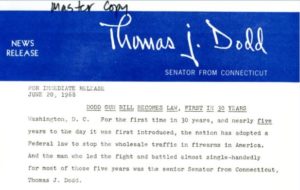
Thomas J. Dodd and the Gun Control Act of 1968
In 1963, Thomas J. Dodd crafted Senate Bill 1975, a “Bill to Regulate the Interstate Shipment of Firearms.”
Read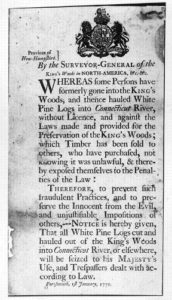
The White Pine Acts – Who Knew?
The British government made it illegal for colonials to cut down white pine trees over 24 inches in diameter—preserving the trees for use as masts on British naval ships.
Read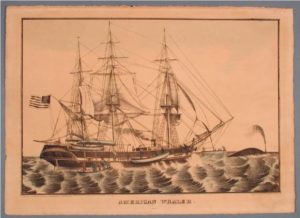
New London’s Indian Mariners
In an era of dispossession and diminishing autonomy on land, Native American mariners learned to use Anglo-American structures and institutions to establish a degree of power and personal freedom for themselves.
Read
Taking on the State: Griswold v. Connecticut
In the 1960s, Estelle Griswold challenged Connecticut’s restrictive birth control law, making it all the way to the Supreme Court.
Read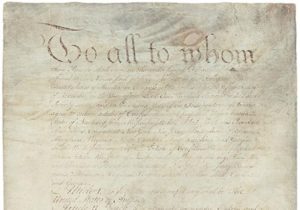
The Articles of Confederation: America’s First Constitution
The Articles of Confederation loosely served as the nation’s first formal governing document, until ultimately being replaced by the US Constitution.
Read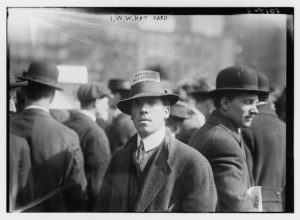
How the Wobblies Won Free Speech
Denied the right to free assembly in public spaces, Connecticut workers joined in a larger national movement of civil disobedience.
Read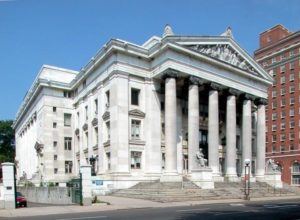
Planned Parenthood League of Connecticut – Today in History: November 1
On November 1, 1961, Estelle Griswold and Dr. C. Lee Buxton opened the Planned Parenthood League of Connecticut in New Haven.
Read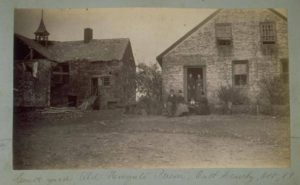
Notorious New-Gate Prison
A failed Simsbury copper mine is now a national historic landmark in East Granby.
Read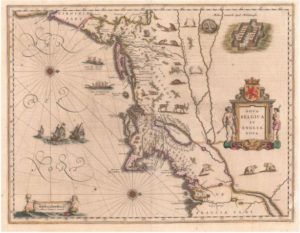
Reckoning with the Dutch: the Treaty of Hartford, 1650
Hartford place names, such as Dutch Point, Huyshope Avenue, and Adriaen’s Landing, are reminders of a time when Connecticut was part of New Netherlands.
Read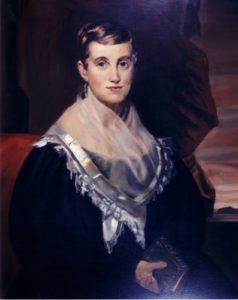
Prudence Crandall Fights for Equal Access to Education
A headmistress champions education for African American women and although forced to close her school in 1834, she helped win the battle for generations that followed.
Read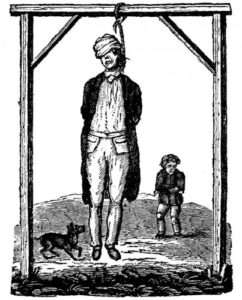
Connecticut Draws the Curtain on Public Executions
Brooklyn’s status as county seat in 1831 resulted in the town hosting what is widely accepted as the last public hanging in Connecticut.
Read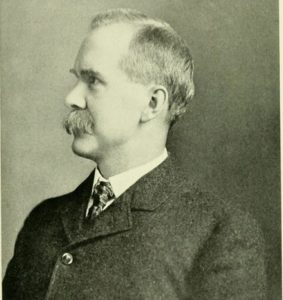
Connecticut Attorney General John H. Light and His Fight for Woman’s Suffrage
Attorney General John H. Light made his pro-suffrage stance public at a time when such advocacy could still lead to criticism
Read
Private vs. Public Property – Today in History: June 23
On June 23, 2005, the US Supreme Court ruled in a precedent-setting eminent domain case Kelo et al vs. New London,.
Read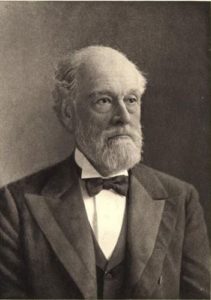
The Platt Amendment – Today in History: June 12
Orville Platt from Meriden presented the Platt Amendment to Congress in 1901. It essentially made Cuba an American protectorate.
Read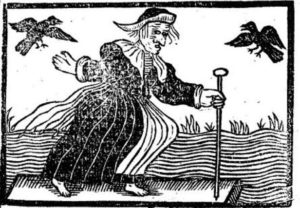
Alse Young Executed for Witchcraft – Today in History: May 26
On May 26, 1647, Alse Young of Windsor was the first person on record to be executed for witchcraft in the 13 colonies.
Read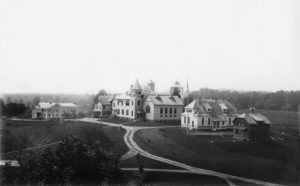
The Yale-Storrs Controversy
In the late 1800s, under pressure from frustrated farmers, the Connecticut General Assembly voted to transfer land-grant status and revenue from Yale to the Storrs Agricultural School (UConn).
Read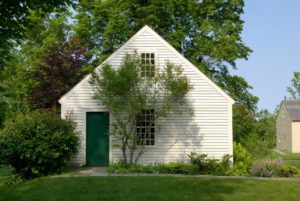
The Litchfield Law School: Connecticut’s First Law School
The Litchfield Law School, founded in 1784 by Tapping Reeve, became the first professional law school in Connecticut.
Read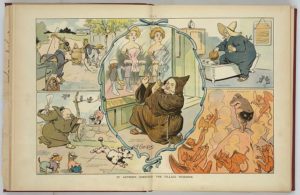
Connecticut and the Comstock Law
Connecticut passed its own state law in 1879 that carried the anti-contraception movement further than any other state in the country.
Read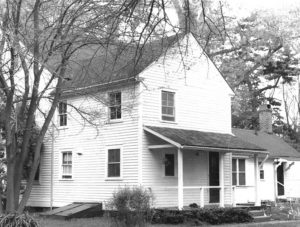
The Smith Sisters, Their Cows, and Women’s Rights in Glastonbury
By refusing to pay unfair taxes, these siblings became national symbols of discrimination suffered by women and of the struggle of the individual against government.
Read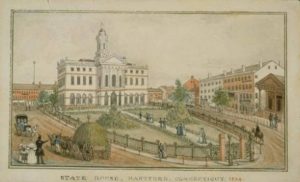
Jackson v. Bulloch and the End of Slavery in Connecticut
Nancy Jackson sued for her freedom in 1837. Her victory helped further the abolitionist cause in a state slowly moving toward outlawing slavery.
Read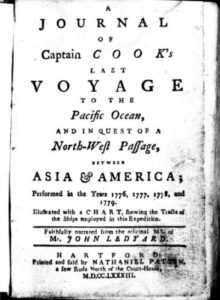
First General Copyright Law – Today in History: January 29
On January 29, 1783, Connecticut became the first state to pass a general colonial copyright law.
Read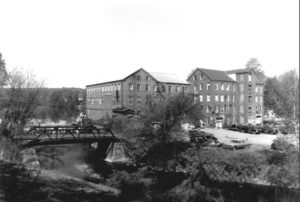
Buckling Up For Auto Safety
Connecticut joined several other states and the District of Columbia mandating seat belt usage for children and adults in automobiles in 1985.
Read
First New-Gate Prisoner – Today in History: December 22
On December 22, 1773, John Hinson the state’s first inmate arrived at New-Gate Prison.
Read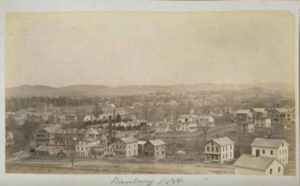
Ending the Danbury Shakes: A Story of Workers’ Rights and Corporate Responsibility
Despite the known dangers of prolonged exposure to mercury, the hat-making industry was slow to safeguard workers against its toxic effects.
Read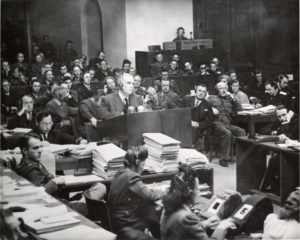
Connecticut Lawyer Prosecutes Nazi War Criminals at Nuremberg
In the immediate aftermath of World War II, Thomas Joseph Dodd served on the United States’ prosecutorial team as Executive Trial Counsel at the International Military Tribunal (IMT).
Read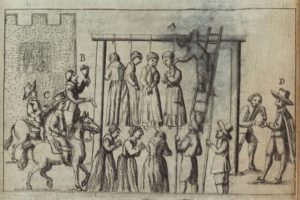
Witchcraft in Connecticut
Well before the Salem trials, Connecticut residents were executing “witches.” Connecticut is home to what was most likely the first execution of its kind in colonial America.
Read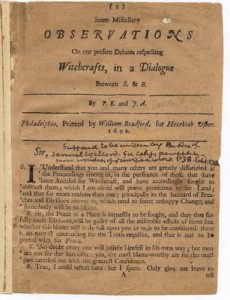
Accidental Shooting Leads to Witchcraft Conviction – Today in History: October 3
On October 3, 1651, Henry Stiles of Windsor was killed when the gun of Thomas Allyn, also of Windsor, accidentally discharged during a militia exercise.
Read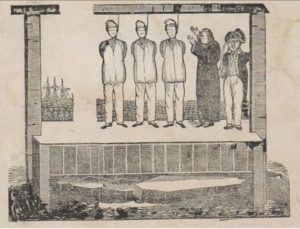
Capital Punishment in Connecticut: Changing Views
Connecticut’s struggles with the issue of capital punishment date back…
Read
The 42-Day Income Tax
In 1971, to eliminate the state’s budget deficit, Connecticut legislators approved a tax on income. Just forty-two days later, they repealed it, instead voting to increase the state’s sales tax.
Read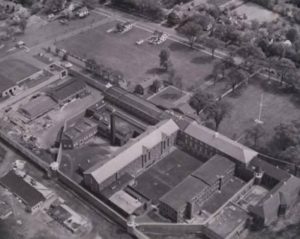
Wethersfield Prison Blues
In September 1827, the newly constructed Connecticut State Prison in Wethersfield opened its doors to 81 inmates once housed at Newgate Prison.
Read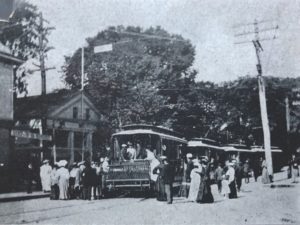
Trolley Campaigners Storm Small Towns and Votes for Women is the Battle Cry
In the wake of a 1912 trolley campaign, the woman’s suffrage movement rapidly gained ground across Connecticut.
Read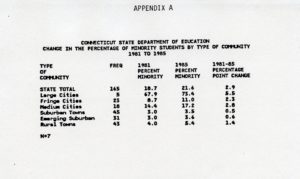
Sheff v. O’Neill – Today in History: July 9
On July 9, 1996, the Connecticut Supreme Court ruled that the state had an affirmative obligation to provide Connecticut’s school children with a substantially equal educational opportunity.
Read
The Lemon Law – Today in History: June 4
On June 4, 1982, Connecticut made legislative history by pioneering the country’s first Lemon Law.
Read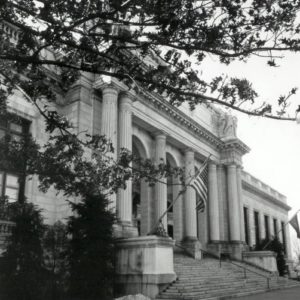
Parking Authority Created in New Haven – Today in History: June 2
On June 2, 1953, the Connecticut Supreme Court of Errors ruled that creating a parking authority in the city of New Haven was constitutional.
Read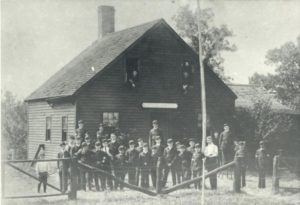
Mary Hall: Connecticut’s First Female Attorney
Writer and suffragist Mary Hall studied law under John Hooker and became Connecticut’s first female attorney.
Read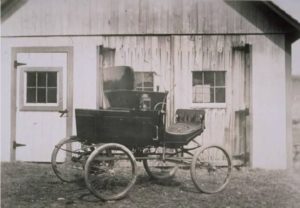
Setting Speed Limits – Today in History: May 21
On May 21, 1901, Connecticut passed An Act Regulating the Speed of Motor Vehicles.
Read
New-Gate Prison Breakout – Today in History: May 18
On May 18, 1781, the largest mass breakout in the history of New-Gate Prison took place.
Read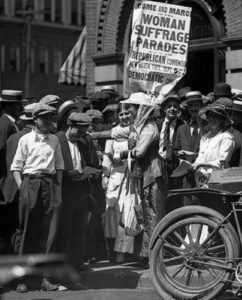
Connecticut Suffragists 1919
Despite the fact that the women in this well-known photograph are unidentified, Connecticut was home to many important figures in women’s struggle for equal rights.
Read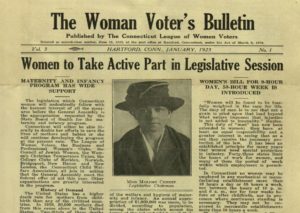
A Day for Women – Today in History: March 8
Women’s fight for the right to vote in the Constitution State may be dated to 1869, when the Connecticut Woman Suffrage Association (CWSA) was organized.
Read
Andover Lake: A Lesson in Social Change
While residents of Andover and other nearby towns enjoy the property’s 159 acres, Andover Lake played in challenging racial boundaries during the Civil Rights Era.
Read
Abraham Ribicoff dies – Today in History: February 22
On February 22, 1998, the first Jewish governor in Connecticut’s history, Abraham Ribicoff, died.
Read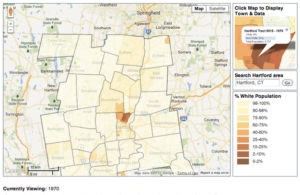
How Real Estate Practices Influenced the Hartford Region’s Demographic Makeup
Persistent segregation is the historic legacy of steering and blockbusting, two discriminatory tactics that played a role in shaping suburban neighborhoods.
Read
First General Copyright Law – Today in History: January 29
In 1783, Connecticut became the first state to pass a general colonial copyright law, entitled “An Act for the Encouragement of Literature and Genius.”
Read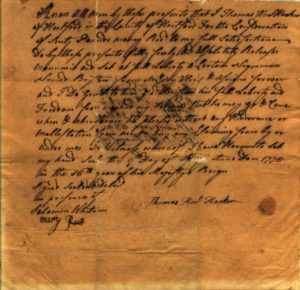
Gradual Emancipation Reflected the Struggle of Some to Envision Black Freedom
Connecticut enacted gradual emancipation in 1784 but the abolition of slavery would not occur until 1848.
Read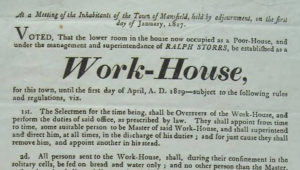
Connecticut Poor Law Aimed to Care for the Needy
Connecticut instituted a Poor Law in the 17th century to comply with a directive from the British government that the colony ensure for the care of the poor within its borders
Read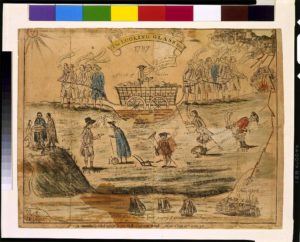
The Connecticut Ratification Convention
Though approved at a renegade convention on September 17, 1787, the US Constitution did not become “the supreme law of the land” until 9 of the 13 states ratified the document.
Read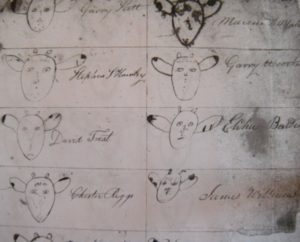
Branding Law Enacted – Today in History: February 5
In 1644, Connecticut enacted the first branding law in the colonies, calling for all livestock owners to ear-mark or brand their cattle, sheep, and swine.
Read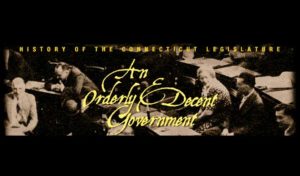
An Orderly & Decent Government: Making Self-Government Work, 1776-1818
The freedom won in the American Revolution did not spread to African Americans. The Constitution of 1818 formed the basis for state government until 1965.
Read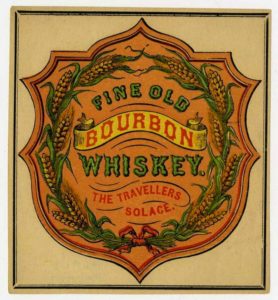
Video: No Booze for You – Who Knew?
During Prohibition, many Connecticut residents found it easy to obtain alcohol illegally, though violations of Prohibition led to an increase in violent crime.
Read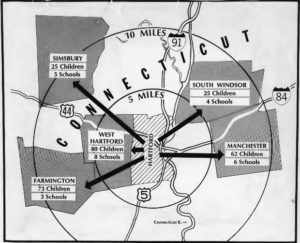
Sheff v. O’Neill Settlements Target Educational Segregation In Hartford
This landmark case not only drew attention to inequalities in area school systems, it focused efforts on reform.
Read
100 Years of Workers’ Compensation
Early attempts to enact industrial accident protections for workers were ruled unconstitutional by US courts, but a New York tragedy paved the way to successful legislation in Connecticut and elsewhere.
Read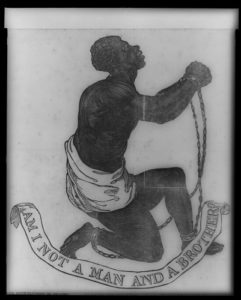
Early Anti-slavery Advocates in 18th-century Connecticut
Ideals advanced during the American Revolution inspired many of the state’s religious and political leaders to question and oppose slavery in the late 1700s.
Read
Free Speech for Some – Who Knew?
In 1939, 150 years after the original passage, Connecticut finally ratified the US Bill of Rights, guaranteeing workers the right to free speech.
Read
Osborn Correctional Institution
When the Connecticut Correctional Institution opened in Somers in 1963, it represented yet another chapter in the state’s history of housing those convicted of crimes.
Read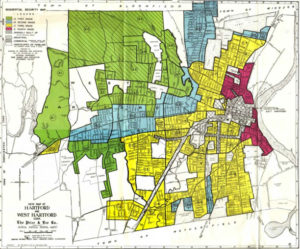
The Effects of “Redlining” on the Hartford Metropolitan Region
Historical data reveals long-term patterns of inequality that can be traced back to now-illegal practices adopted by federal and private lenders in the 1930s.
Read
Video – Connecticut’s Cultural Treasures: Prudence Crandall Museum
Connecticut’s Cultural Treasures is a series of 50 five-minute film vignettes that profiles a variety of the state’s most notable cultural resources.
Read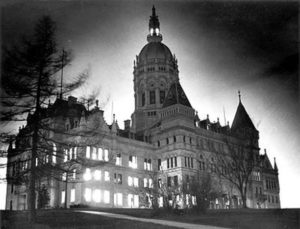
New State Capitol 1878
By the 1870s, the State’s practice of having dual capitols in Hartford and New Haven was considered awkward and ineffective.
Read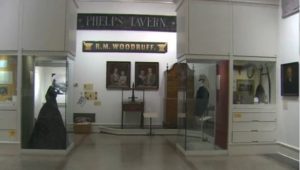
Video – Connecticut’s Cultural Treasures: Litchfield Historical Society
Connecticut’s Cultural Treasures is a series of 50 five-minute film vignettes that profiles a variety of the state’s most notable cultural resources.
Read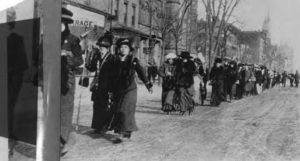
Looking Back: How the Vote Was Won
Today it is the Katharine Hepburn Cultural Arts Center (The Kate) but it began as the Old Saybrook Musical and Dramatic Club.
ReadMore Articles



